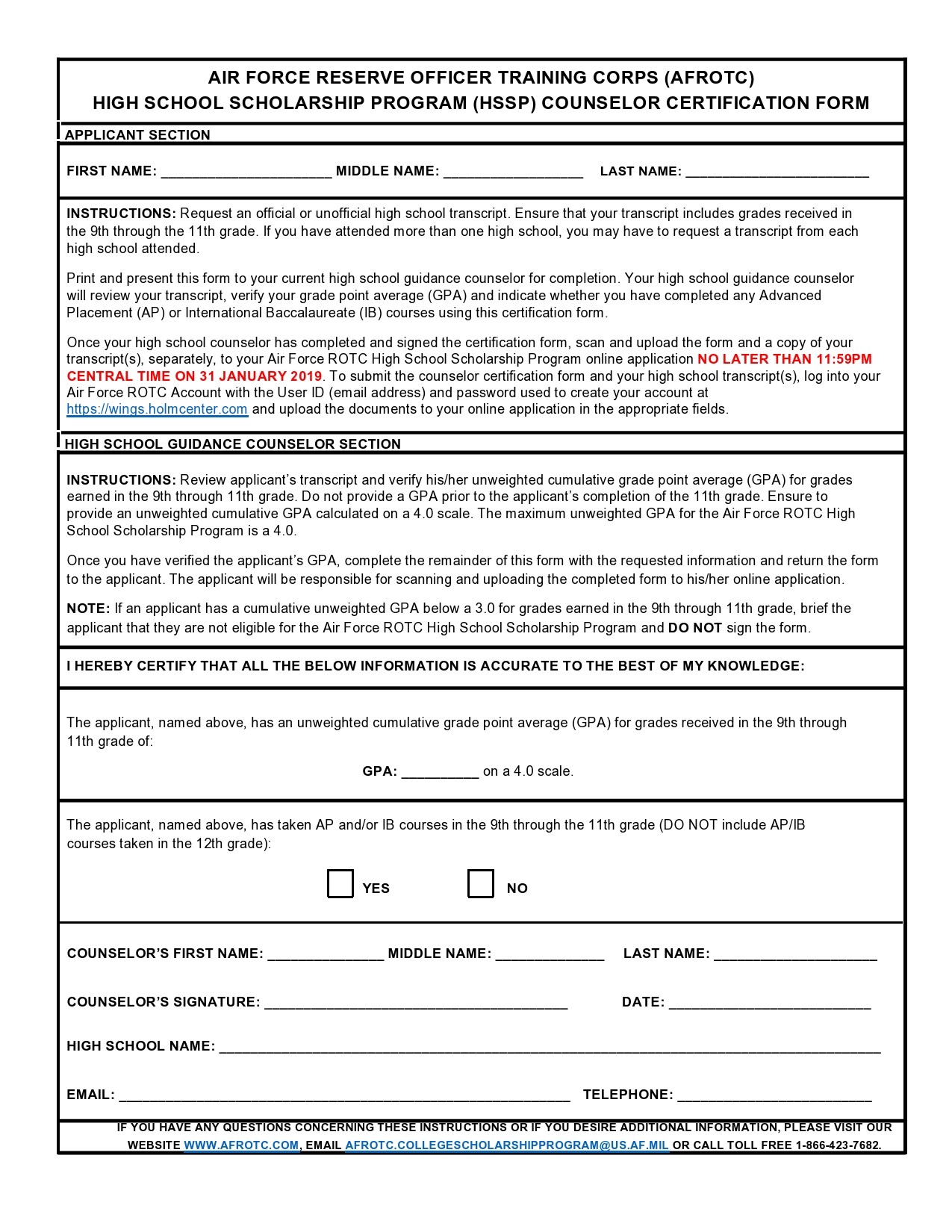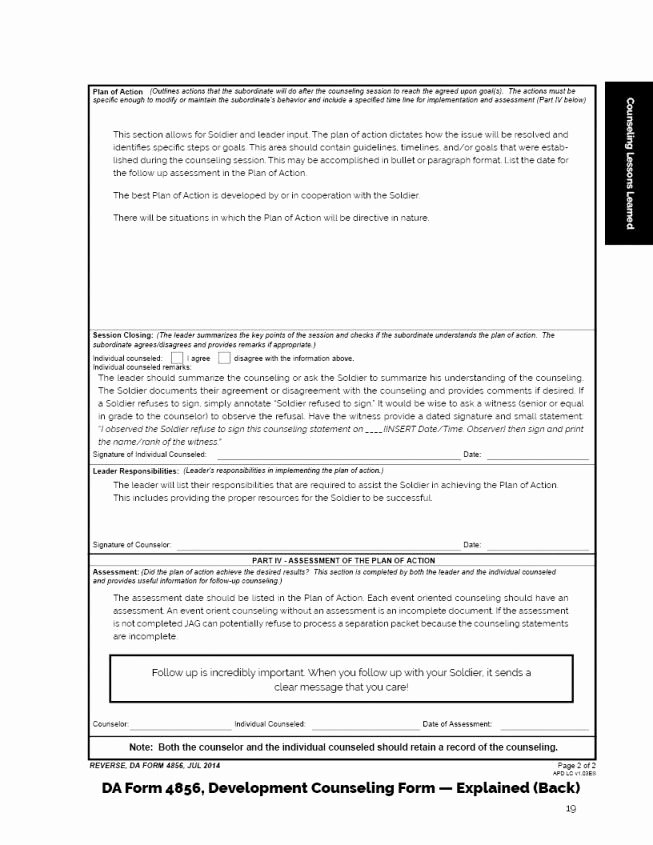Army Counseling Regulation : What it is
The Army Counseling Regulation: Everything You Need to Know In today's post, we will take an in-depth look at the Army Counseling Regulation, its purpose, and how it applies to military personnel. As an important aspect of military guidance and mentorship, counseling plays a crucial role in shaping the professional growth and career development of Army personnel. This article aims to provide you with a comprehensive understanding of the regulation, guiding you through its key components and addressing frequently asked questions. 1. Understanding the Army Counseling Regulation The Army Counseling Regulation, also known as Army Regulation 600-20, is a comprehensive document that outlines policies and procedures regarding Army counseling. It establishes guidelines for leaders to counsel and mentor subordinates effectively. The regulation emphasizes the importance of counseling and its impact on soldiers' professional development, discipline, and personal welfare. 2. Importance of Effective Counseling Good leadership is the cornerstone of the Army's success, and effective counseling plays a vital role in developing strong leaders. Through counseling, leaders can provide guidance, set goals, identify strengths and areas for improvement, and reinforce Army values and expectations. Additionally, counseling allows leaders to build trust and establish a positive work environment, enhancing overall unit cohesion and morale. 3. Types of Army Counseling The Army Counseling Regulation encompasses various types of counseling, including initial, performance, and professional growth counseling. Initial counseling occurs when a soldier enters the Army, providing an introduction to the expectations and standards of the military. Performance counseling takes place regularly to evaluate and improve a soldier's performance, while professional growth counseling focuses on long-term career development and progression. 4. Conducting Effective Counseling Sessions To ensure the effectiveness of counseling sessions, there are certain key elements that leaders must keep in mind. Firstly, counseling should be conducted in a private, comfortable setting to promote open and honest communication. Leaders must actively listen to the concerns and aspirations of their subordinates, provide guidance based on their experience and expertise, and set achievable goals with clear timelines. The counseling process should be a two-way street, allowing soldiers to express their thoughts and concerns while receiving guidance and mentorship from their leaders. 5. Frequently Asked Questions (FAQ) To further clarify some common queries regarding Army counseling, here are answers to frequently asked questions: Q: What if I disagree with the counseling received? A: If you disagree with the counseling received, you have the right to express your concerns to your leader. It is important to have an open and respectful discussion addressing the issues at hand. Q: Can counseling sessions have a significant impact on one's career progression? A: Yes, counseling sessions can significantly impact a soldier's career progression. Positive counseling can lead to recommendations for awards, promotions, and special assignments. Q: Is counseling only conducted by superiors? A: No, counseling can also occur peer-to-peer and even upward from a subordinate to a superior. The goal is to provide guidance, support, and mentorship at all levels. 6. The Power of Effective Counseling Effective counseling has the power to transform individual soldiers and shape the future of the Army as a whole. By establishing a strong culture of mentorship and guidance, the Army can ensure that its personnel are equipped with the necessary skills, knowledge, and mindset to succeed in their military careers. In conclusion, the Army Counseling Regulation is a crucial tool that enables leaders to provide effective guidance and mentorship to their subordinates. By adhering to the guidelines outlined in the regulation, leaders can foster a positive work environment, enhance the professional growth of their soldiers, and contribute to the overall success of the Army. Remember, counseling is not just about correcting deficiencies; it is about building strong, resilient, and resourceful leaders who will uphold the values and mission of the Army. Disclaimer: The information provided in this article is for educational purposes only and should not be considered as legal or official advice. Please refer to Army Regulation 600-20 for the most up-to-date information on Army counseling. FAQ Sources: - Army Regulation 600-20: Army Command Policy - United States Army, Official Website  Image Source : www.myoscommercetemplates.com
Image Source : www.myoscommercetemplates.com  Image Source : www.armypubs.org
Image Source : www.armypubs.org  Image Source : armymilitary.net
Image Source : armymilitary.net  Image Source : armymilitary.net
Image Source : armymilitary.net  Image Source : vanplane13.gitlab.io
Image Source : vanplane13.gitlab.io  Image Source : bank2home.com
Image Source : bank2home.com  Image Source : dannybarrantes.com
Image Source : dannybarrantes.com  Image Source : templatelab.com
Image Source : templatelab.com
Platoon Sergeant Initial Counseling
 Image Source : www.myoscommercetemplates.com
Image Source : www.myoscommercetemplates.com counseling initial sergeant platoon statement army regulation record templates example myoscommercetemplates
Army Counseling Form
 Image Source : www.armypubs.org
Image Source : www.armypubs.org Army Monthly Counseling - Army Military
 Image Source : armymilitary.net
Image Source : armymilitary.net Army Monthly Counseling - Army Military
 Image Source : armymilitary.net
Image Source : armymilitary.net Beautiful Work Military Application Letter Sample Customer Service
 Image Source : vanplane13.gitlab.io
Image Source : vanplane13.gitlab.io 10 Printable Army Counseling Examples Forms And Templates Fillable
 Image Source : bank2home.com
Image Source : bank2home.com √ 20 Army Initial Counseling Examples ™ | Dannybarrantes Template
 Image Source : dannybarrantes.com
Image Source : dannybarrantes.com counseling army initial examples form 4856 da template dannybarrantes
31 Free Army Counseling Forms (DA 4856 Fillable) ᐅ TemplateLab
 Image Source : templatelab.com
Image Source : templatelab.com counseling army form forms fillable da templatelab kb
Army monthly counseling. Counseling army initial examples form 4856 da template dannybarrantes. 31 free army counseling forms (da 4856 fillable) ᐅ templatelab. √ 20 army initial counseling examples ™. Army monthly counseling